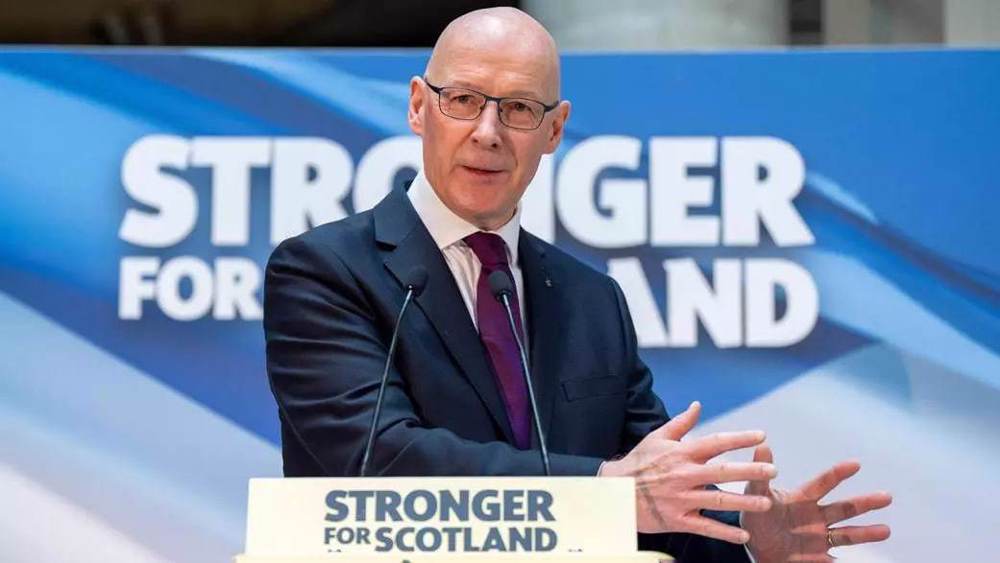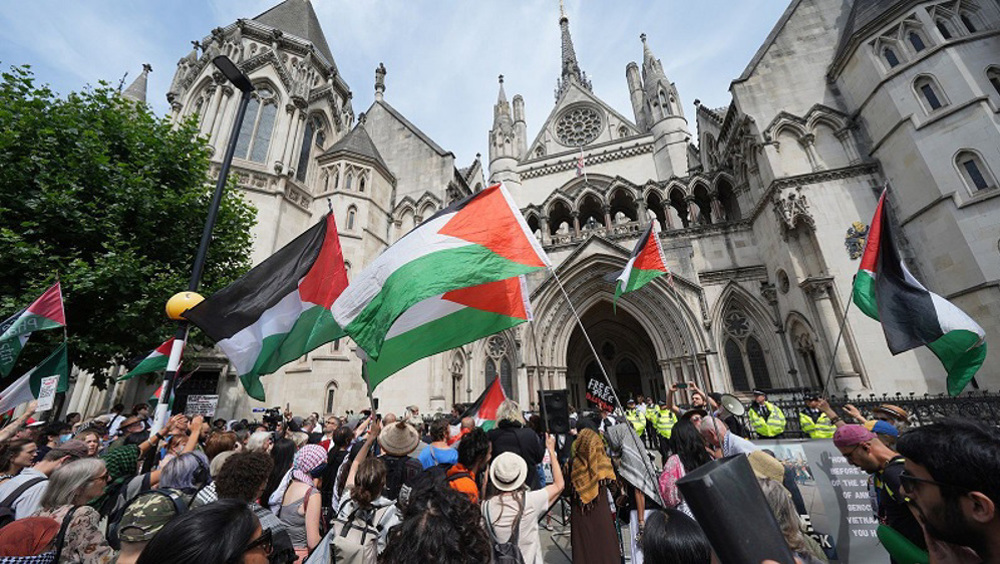Behold Britain: Here Comes Boris
As widely expected Boris Johnson has become Britain’s new prime minister. The "maverick" Tory MP, and former foreign secretary, scored a stunning victory over rival Jeremy Hunt by securing 92,153 votes to Hunt’s 46,656.
Addressing the core of the Conservative party during his victory speech, at the Queen Elizabeth II centre in London, Johnson promised to “energise” the country.
In typical bombastic fashion he said he will “deliver Brexit, unite the country and defeat Jeremy Corbyn”.
Johnson’s ascent to the premiership marks the pinnacle of a remarkable political career forged against the backdrop of ideological radicalisation and national fragmentation.
Educated at Eton and Oxford, Johnson landed his first journalistic job at the Times in late 1987. He later moved to the Daily Telegraph where according to senior Tory and former governor of Hong Kong, Chris Patten, he forged a reputation as one of the “greatest exponents of fake journalism”.
Johnson also developed a reputation for rogue behaviour, if not outright criminality. In a tape recording dating back to 1990, he agrees to supply the address of a journalist to a close friend who was intent on having the journalist beaten up.
Speaking to the Guardian on July 14, the journalist in question, Stuart Collier (who worked for News of the World at the time), demanded an apology from Johnson before stating that he is unfit to become prime minister.
Johnson entered politics in 2001 after he won the race to become MP for Henley in Oxfordshire. He was re-elected in 2005 but stood down in 2008 to contest the London mayoral election.
His success in becoming mayor catapulted Johnson onto the centre stage of British politics. His larger than life character, coupled with his willingness to take risks, endeared him to the wider public, including some of his erstwhile critics.
Although Johnson secured a second term as mayor of London in 2012, his record can hardly be described as a resounding success. The Guardian described his legacy as a “string of expensive vanity projects that ended up costing the taxpayer £940 million”.
It can be argued that Johnson’s bid for the premiership began in earnest following his adoption of the Leave campaign in the June 2016 referendum on Britain’s continuing membership in the European Union (EU).
Johnson’s critics, notably Ian Hislop, the editor of the satirical and investigative magazine Private Eye, argue that his decision to front the Leave campaign was informed by “naked political calculation”.
According to Hislop, Johnson calculated that he could benefit most by exploiting the inevitable chaos generated by the run-up to Brexit.
Following his successes at the so-called Brexit referendum, Johnson rejoined the government at the highest level by becoming foreign secretary in Theresa May’s cabinet.
Johnson did not perform well in this role as his effusive and gaffe-prone approach was ill-suited to the diplomatic world.
His lowest point came in November 2017 when in a rare moment of honesty Johnson admitted that Nazanin Zaghari-Ratcliffe was involved in illegal activities in Iran.
The British political and media establishments swiftly turned on Johnson and to this day they continue to use his honesty against him.
The big question, of course, is how well will Johnson fare as prime minister?
Johnson’s biographer, Sonia Purnell, who claims there are “many different Borises”, is not optimistic about his chances.
Speaking to Sky News, Purnell says that Tories who believe that Johnson has a “magic wand” are likely to be disappointed as at the end of the day he is “only human”.
In addition to all the difficulties Johnson faces in uniting his party and country, he is forced to grapple with extremely adverse geopolitical forces.
Johnson’s promise to exit the EU on 31 October, come what may, effectively boxes him into a corner and dramatically increases the risk of a no-deal Brexit.
A hard Bexit will, in turn, exacerbate the UK’s centrifugal forces, notably Scottish, Welsh and northern Irish quests for independence, and in the case of the latter, a union with the Republic of Ireland.
Johnson is likely to clash head on with the forces of Scottish nationalism, as the Scottish National Party has pledged to hold a second independence referendum by 2021.
If as widely expected the Scottish nationalists prevail then the United Kingdom will be much diminished.
An independent Scotland will in turn embolden Welsh, northern Irish and even English nationalists, thus potentially heralding the dissolution of the United Kingdom.
Johnson also has more immediate problems to worry about. Britain’s decision to do America’s bidding by illegally seizing a tanker carrying Iranian crude oil in the Gibraltar Strait, has left London more isolated than ever.
The combination of deep internal divisions, a hard Brexit and diplomatic isolation on the world stage, is a massive challenge for any British prime minister, let alone a volatile and unpredictable man as Boris Johnson.
The man who as a child wanted to be “world king” may end up destroying the kingdom in his own country.
VIDEO | Canadians preparing to hold more rallies in solidarity with Venezuela
VIDEO | Iranian national Mahdieh Esfandiari goes on trial for supporting Palestine
VIDEO | Italian farmers launch protest campaign against EU-Mercosur free trade deal
VIDEO | Trump’s Gaza ‘Board of Peace’ invitation sparks criticism in Pakistan
VIDEO | Iran, Iraq vow to deepen ties, hail US exit
Araghchi slams World Economic Forum for canceling his invitation
Iran condemns Argentina’s unfounded accusations against IRGC
VIDEO | Fighting British state










 This makes it easy to access the Press TV website
This makes it easy to access the Press TV website